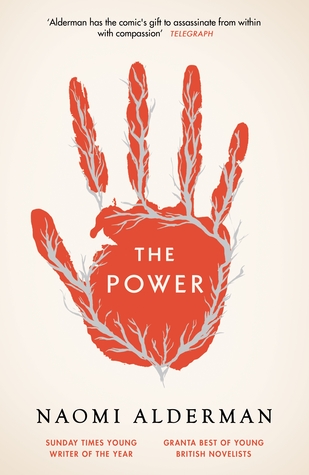Book Notes: The Power
The Power (Naomi Alderman, 2017) was not an easy read. It contains staggering violence, inhuman misogyny and misandry, unbearable suffering and loss. It did not end on a happy note. And yet, this novel sank its teeth in me and dragged me all the way to the last page almost against my will — I just couldn’t look away.
The book is framed as Neil, a male historian, sending Naomi his manuscript of the historical novel “The Power”, seeking her feedback. He has novelized his research in an attempt to make it more palatable and less shocking to general audiences.
This “manuscript” forms the core of the book. It tracks the parallel and eventually intertwining paths of three women and one man through a major world event: women awake to a new “power” — the ability to give electric shocks, ostensibly caused by a genetic mutation — and are now physically stronger than men. Through the eyes of Tunde, a male journalist, we first see the wonder and excitement of the world turning upside down, the joy of oppressed people becoming empowered. Then we watch his wonder turn into anxiety and later fear and finally terror, as he realizes he is no longer safe without a woman to protect him.
The thought experiment of “what if women were more physically powerful than men” is interesting, but didn’t get explored as deeply as I had hoped. The final outcome presented in this story — that women would become cruel and violent oppressors if we only had the physical power to do so — seems to lack nuance and imagination. I find the conclusion that power always corrupts trite and somewhat lazy. The idea that oppressors oppress “just because they can” does not make room for all the complexity of humans and our drives.
I was amused by the dark humor and insight in the letters that Neil and Naomi exchange about the manuscript, poking fun at how easily we can build narratives and even “science” to explain and justify the world. They helped lighten up the tone after the closing of the central story. As an example, Naomi writes to Neil:
I feel instinctively — and I hope you do, too — that a world run by men would be more kind, more gentle, more loving and naturally nurturing. Have you thought about the evolutionary psychology of it? Men have evolved to be strong worker homestead-keepers, while women — with babies to protect from harm — have had to become aggressive and violent.
I recommend this book, but only if you are up to reading disturbing scenes of violence, including rape (spoiler: not all the victims are women).
Tags: books
